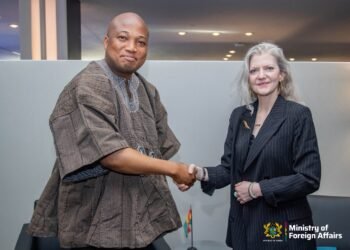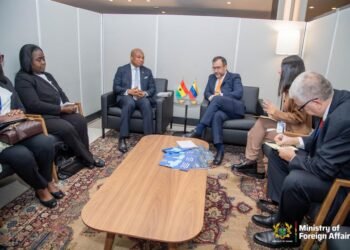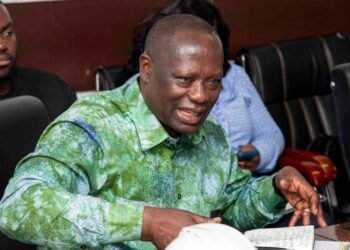Ghana has long prided itself on neutrality in international affairs and earned credibility as a voice of reason and a potential mediator in regional and global conflicts.
Recent statements by the government expressing solidarity with the Palestinian people have sparked debate in Parliament, particularly from the Minority, who argue that such positions risk entangling Ghana in the complex politics of the Middle East.
It is essential, however, to distinguish between partisan alignment and principled advocacy. Supporting a people whose rights are under threat does not automatically imply taking sides in the broader conflict.
As a nation that values human rights and justice, Ghana has both a moral and ethical responsibility to speak against the obliteration of civilian populations. In international relations, there is a difference between siding with a government and defending human dignity.
Human rights scholars remind us that freedom is relational. One cannot claim true liberty while standing idly by as another is oppressed. In the case of Gaza, the civilian population faces attacks, displacement, and violations of fundamental rights.
Observing in silence would be tantamount to condoning abuse. In this sense, Ghana’s statements in support of Gaza are consistent with a commitment to protecting the rights of those under threat, rather than abandoning neutrality.
At the same time, prudence remains necessary. Ghana must craft its statements and actions in a way that promotes humanitarian protection without unnecessarily antagonizing other actors or compromising its role as a potential mediator.
Words like “genocide” carry legal and diplomatic weight and can polarize international audiences. The challenge is to advocate for human rights while preserving the country’s long-term diplomatic credibility.
From a security and conflict perspective, the situation in Gaza demonstrates the broader principle that human suffering cannot be ignored in the name of strict non-alignment. The balance lies in being principled yet strategic: speaking out to prevent abuses, while maintaining channels for dialogue with all parties involved.
This approach aligns with Ghana’s historical commitment to peace, justice, and international law. Critics may argue that Ghana risks alienating certain partners or appearing biased. Yet, silence in the face of systematic human rights violations is also a political and ethical choice, and not necessarily a neutral one.
Upholding human dignity and protecting vulnerable humans are values that transcend alliances. Ghana’s engagement, therefore, can be framed as an insistence on humanitarian principles rather than an intervention in political disputes.
The moral imperative is clear: the international community cannot allow an entire population to be silenced, displaced, or obliterated without response. Ghana, as a respected African state, has the opportunity to articulate this stance, advocating for the protection of civilians and adherence to international humanitarian law. This is not interference; it is solidarity in defense of rights and human life.
Historically, Ghana has maintained credibility by balancing principles with pragmatism. Its statements on Gaza could similarly reflect a careful combination of moral advocacy and diplomatic foresight, which reminds the world that even small states have a voice in defending justice and human dignity.
This balance reinforces Ghana’s reputation as a principled actor in global affairs. The fact is, speaking out for Gaza does not diminish Ghana’s neutrality; it rather demonstrates our commitment to the universal values of human rights and protection of the vulnerable.
Diplomacy, after all, is not only about managing relations between states; it is also about defending the rights of those who cannot defend themselves. The essence of leadership is sometimes to act when silence would be complicity.
In conclusion, I am saying that Ghana’s role in this conflict should be guided by ethics, law, and pragmatism. There is nothing wrong with advocating for the protection of civilians in Gaza. To witness abuse without response is to fail both morality and humanity.
Ghana can, and should, speak for the oppressed, ensuring that its foreign policy reflects a commitment to human dignity, while maintaining the strategic prudence necessary for long-term influence in international affairs.
Author: Abubakar Mohammed Aminu, Conflict, Security, and Human Rights Activist.



















